While cats are known for their agility and quick reflexes, they also possess unique physiological traits that set them apart. A question that frequently piques curiosity is whether cats can breathe through their mouths. While it may appear to be a simple question, the answer delves into the captivating realm of feline biology, offering a fascinating exploration. This document aims to delve into this topic, providing insights into the breathing mechanism of cats and the circumstances under which they might resort to mouth breathing.
How Do Cats Normally Breathe? How Many Breaths Do Cats Take?
Cats generally respire through their nostrils, similar to humans. This nasal breathing allows them to filter out dust and debris from the air, keep the air at a warm temperature, and also catch scents that are essential for their survival instincts. Normally, a cat’s respiratory rate is 20-30 breaths per minute. The rate can fluctuate depending on factors like the cat’s activity level, emotional state, and overall health. If a cat’s breathing pattern undergoes drastic changes or if they begin to breathe rapidly and excessively through their mouth, it indicates potential respiratory distress. In such cases, it is crucial to seek immediate veterinary attention for the cat.
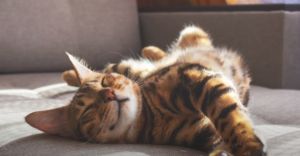
Can Cats Breathe Through Their Mouths & Is It Safe?
Certainly, cats are capable of breathing through their mouths, although it is not their primary nor preferred mode of respiration. Under normal conditions, cats breathe through their nose. They may resort to mouth breathing if their nasal passages are obstructed or if they are in distress. Although it is physically possible for cats to breathe through their mouths, it is typically indicative of an underlying problem and should not be disregarded. If a cat is panting or breathing heavily through its mouth, it may indicate heatstroke, heart disease, respiratory problems, or other health issues. If a cat is seen breathing through their mouth, it’s important to consult a veterinarian right away to determine the cause and provide necessary treatment. [1]
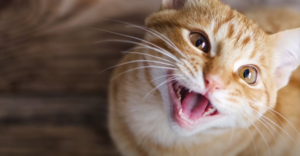
When To Be Worried About Your Cat or Kitten Open Mouth Breathing
Although cats may occasionally breathe through their mouths, particularly during or after intense exercise or in moments of excitement, any instances of prolonged or repeated mouth breathing should be treated with utmost seriousness.
Mouth Breathing From Overexertion
Similar to humans, cats may also engage in mouth breathing after a period of vigorous physical activity or play. This is their way of expelling excess heat and returning their body temperature to normal. If a cat is seen breathing through its mouth after a vigorous play session or chasing a toy, and then promptly resumes normal breathing, it may not be a cause for alarm. If the open mouth breathing persists even after the cat has rested, or if it seems excessive compared to the level of exertion, it may indicate a more significant underlying problem. This could range from respiratory conditions to heart problems, and warrants an immediate visit to the vet. Remember, while occasional mouth breathing due to overexertion might be normal, persistent or excessive mouth breathing is not typical and should always be evaluated by a professional.
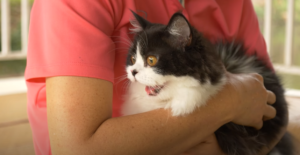
Feline Asthma
Feline asthma, much like human asthma, is a chronic condition characterized by inflammation and constriction of the small passageways in the lungs. It can lead to difficulty in breathing and, in severe cases, can cause life-threatening situations. Cats suffering from this condition may resort to mouth breathing in an attempt to get more air into their lungs. Symptoms of feline asthma can include persistent coughing, wheezing, and labored breathing. Sometimes, a cat may assume a posture known as an “asthmatic stance” where they hunch their body close to the ground, extend their neck, and gasp for air. Asthma attacks can be triggered by various factors such as allergens, smoke, perfumes, or even stress. If a cat shows any signs of asthma, it is crucial to seek immediate veterinary attention. Treatment usually involves managing the condition with the use of inhalers or injected medication to reduce inflammation and open airways. Making lifestyle changes may be necessary for long-term management to eliminate or minimize exposure to triggers. [2]
Something Is Stuck In Their Throat
Cats, known for their inherent curiosity, sometimes ingest foreign objects that can become stuck in their throats, resulting in the need for open-mouthed breathing. In such cases, the cat may try to cough or gag in an attempt to dislodge the item. It may also paw at its face, drool, or show discomfort while swallowing. If you suspect your cat has swallowed something it shouldn’t have, it’s vital to seek veterinary assistance immediately. It is advised not to try removing the item on your own, as doing so might unintentionally push the object deeper or result in injury. The veterinarian may use special tools or perform a procedure to safely remove the obstruction. Remember, prompt action is essential in such situations as a prolonged obstruction can have serious, even fatal, consequences.
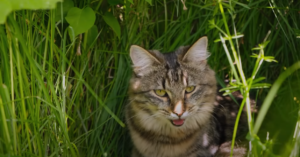
Your Cat Has A Feline Cold
Cats, like humans, can catch colds known as Feline Upper Respiratory Infections. These infections can cause symptoms similar to those experienced by humans, including a runny nose, sneezing, and congestion. When a cat is congested, it may start breathing through its mouth. It’s essential to note that, although symptoms may appear mild initially, a cat’s condition can deteriorate rapidly. If your cat shows any signs of a cold, such as frequent sneezing, discharge from the nose or eyes, and breathing through the mouth, it is crucial to seek immediate veterinary advice. Treatment will often involve supportive care like keeping the cat hydrated, ensuring it eats, and in some cases, administering antibiotics to fight off secondary bacterial infections. Prevention is always better than cure, so regular vaccination to protect against common feline respiratory pathogens is highly recommended. [3]
Upper Respiratory Infections
Upper Respiratory Infections (URIs) are one of the most common illnesses in cats, often caused by several viruses and bacteria. The symptoms can include sneezing, nasal discharge, conjunctivitis, ulcers on the tongue, loss of appetite, and, in some cases, open-mouth breathing due to severe nasal congestion. Your cat may also exhibit behavior changes such as lethargy or decreased activity. If you notice these symptoms, it is essential to take your cat to a veterinarian for a proper diagnosis and treatment.
Heatstroke
Heatstroke is a serious condition that can occur when cats are exposed to high environmental temperatures, typically without access to water or shade. Signs of heatstroke in cats can include excessive panting or open-mouth breathing, drooling, increased heart rate, lethargy, and even collapse or unconsciousness. If you suspect your cat is suffering from heatstroke, it’s crucial to act quickly. Move the cat to a cooler area, offer water (but do not force to drink), and moisten the fur with cool (not cold) water. Immediate veterinary care is essential for a cat experiencing heatstroke. Treatment may include intravenous fluid therapy and oxygen support. To prevent heatstroke, always ensure your cat has access to fresh water and shaded areas, especially during hot weather, and never leave your cat in a car on a warm day. [4]
Is Your Cat Sleeping With Their Mouth Open?
Cats usually sleep with their mouths closed. If your cat sleeps with its mouth open, it may indicate underlying issues like respiratory distress, dental problems, or stress. Open-mouth breathing or panting while sleeping could indicate difficulty breathing due to conditions like asthma or upper respiratory infections. Dental problems, like periodontal disease, can cause discomfort, leading to open-mouthed sleeping. Stress or anxiety can also cause changes in your cat’s behavior, including the way it sleeps. If your cat is sleeping with its mouth open regularly, it’s important to monitor for other signs of distress such as changes in eating habits, lethargy, changes in behavior, or any physical signs like discharge from the nose or eyes, coughing, or weight loss. Any of these signs, along with open-mouth sleeping, warrant a visit to the veterinarian for a thorough examination. Remember, early detection and treatment of underlying issues can significantly improve your cat’s prognosis and quality of life. [5]
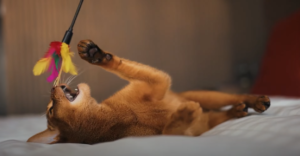
FAQ
How long can a cat breathe through its mouth?
Cats are primarily nose breathers and only resort to mouth breathing under certain circumstances, such as during physical exertion or when suffering from certain health conditions. However, prolonged mouth breathing is potentially dangerous and can lead to respiratory distress. If your cat is persistently breathing through its mouth, it should be considered a medical emergency and the cat should be taken to a vet immediately. There is no fixed duration for how long a cat can safely breathe through its mouth as it greatly depends on the individual cat and the underlying cause. But any instance of sustained mouth breathing warrants immediate veterinary attention.
Can cats get out of breath?
Just like humans, cats can indeed get out of breath. This usually happens after vigorous play or exercise when their body needs more oxygen. However, cats are generally efficient breathers and should return to their normal breathing pattern soon after the activity concludes. If you notice your cat panting or breathing heavily during rest, or after only a small amount of activity, it might be a sign of a health concern such as heart disease, asthma, or respiratory infection. In such cases, it’s crucial to get your cat checked by a veterinarian as soon as possible. Remember, while occasional heavy breathing might be normal, regular or prolonged instances can indicate serious health issues that require immediate attention.
Do cats breathe silently?
Cats typically breathe very quietly, so much so that it might seem like they are breathing silently. Their normal respiration is smooth, quiet, and unlabored. You would usually need to be very close to hear a healthy cat’s breathing. If you notice your cat is making noise while breathing even at rest, it could be a sign of respiratory distress or an underlying health condition such as a respiratory infection, nasal obstruction, or other lung diseases. Therefore, any audible or labored breathing in cats should not be ignored and warrants a quick consultation with a veterinarian.
How does a sick cat breathe?
A sick cat may display changes in their breathing pattern, depending on the specifics of their illness. Typically, a cat with respiratory distress might breathe with their mouth open, pant heavily, or their breath might become shallow and rapid. Health issues such as pneumonia, asthma, or other respiratory diseases can cause a cat’s breathing to become noisy or labored, often accompanied by wheezing or coughing. Signs of breathing difficulties may also manifest as flared nostrils, an elongated neck, or the cat appearing to engage their abdominal muscles for respiration. In severe cases, a bluish discoloration of the gums or tongue may be observed due to lack of oxygen. Any changes in a cat’s breathing should be taken seriously and warrant immediate veterinary attention.
How can I tell if my cat’s airway is blocked?
A blocked airway in a cat can present several symptoms which are typically unmistakable. The cat may exhibit panic or distress, with attempts to cough, paw at its mouth, or an inability to swallow. They might also display labored, noisy breathing, excessive salivation, or drooling. In severe cases, the cat may collapse or faint due to lack of oxygen. Their gums and tongue may turn bluish due to oxygen deprivation. Any signs of choking or a blocked airway are a medical emergency requiring immediate professional attention. It’s crucial not to attempt to dislodge the blockage yourself as it may lead to further complications. Instead, take your cat to a veterinarian immediately.
What is fading kitten syndrome?
Fading Kitten Syndrome refers to a set of conditions that result in the rapid decline of a newborn kitten’s health, often leading to their death if not promptly treated. This syndrome can be influenced by factors such as infectious diseases, congenital defects, environmental conditions, and malnutrition. Kittens with this syndrome may show signs such as lethargy, difficulty breathing, decreased body temperature, and refusal to nurse. As newborn kittens are extremely fragile, any changes in their behavior or health status can be a cause for concern. Newborn kittens displaying these symptoms should receive immediate veterinary attention. It’s crucial for owners to closely monitor their kittens’ health, especially during the first few weeks, as early intervention can significantly improve the kitten’s chances of survival.
Do cats breathe harder when they sleep?
Cats, like humans, may exhibit slight changes in their breathing pattern while they sleep. Their breaths might deepen and slow down as they enter deeper stages of sleep, which may give the appearance of breathing harder. However, these changes are usually minimal and not easily noticeable. If you notice your cat experiencing breathing difficulties, panting, or heavy breathing while sleeping, it could be a sign of underlying health issues such as obesity, heart disease, or respiratory problems. Any noticeable changes in your cat’s breathing should be addressed with a veterinarian to rule out potential health risks.
What are the signs of heart failure in cats?
Heart failure in cats can manifest in several ways and it’s vital to know these signs to ensure timely medical intervention. Cats afflicted with heart disease might exhibit lethargy, loss of appetite, weight loss or weight gain around the abdomen due to fluid accumulation. They might also display difficulty in breathing or rapid breathing, even at rest. Coughing or panting can be another sign, although coughing is less common in cats compared to dogs. Some cats may show signs of fainting or collapsing, especially following exertion. In advanced cases, you might also notice a bluish discoloration of the gums and tongue due to lack of oxygen. If your cat displays any of these symptoms, it’s essential to seek immediate veterinary care. Remember, early detection and treatment can significantly improve the prognosis for a cat with heart disease.
Is it OK if my cats breath stinks?
Having a bit of odor in a cat’s breath is normal, particularly if they’ve just eaten. However, if your cat’s breath consistently smells bad, it may be indicative of a health issue. Oral health problems such as gingivitis, periodontal disease, or a tooth abscess can cause bad breath in cats. Moreover, chronic halitosis may indicate underlying health issues such as kidney disease, liver disease, or diabetes. If you notice a sudden change in your cat’s breath or it becomes excessively foul, it’s important to consult with a veterinarian to identify and address any potential underlying health problems.
Do cats breath stink?
Like any animal, a cat’s breath could sometimes have an odor which is typically influenced by what they’ve recently eaten. However, persistent foul breath could indicate an underlying health issue. Dental health problems are often the cause, such as periodontal disease, gingivitis, or a tooth abscess. Systemic diseases like kidney disease, liver disease, or diabetes can also give rise to bad breath in cats. If you observe a persistent foul odor from your cat’s breath or a sudden change in its smell, it’s highly recommended to consult with a veterinarian. Early detection and treatment of these issues can help maintain your cat’s overall health and wellbeing.
Useful Video: Why is my cat open mouth breathing?
Conclusion
In conclusion, understanding your cat’s normal breathing pattern is crucial for early detection of potential health issues. While cats can breathe through their mouth, this is not their natural or preferred method of respiration. Persistent or severe cases of difficult breathing, wheezing, coughing, and halitosis could indicate underlying health conditions such as heart failure, respiratory diseases, dental issues, or systemic diseases. Therefore, any changes in your cat’s breathing should warrant immediate attention from your vet. Equipped with this knowledge, cat owners can provide better care for their feline companions, fostering a healthier and happier life for them. Remember, when it comes to your pet’s health, vigilance and early intervention can make all the difference.
References:
- https://catsonly.org/learn/health-body/can-cats-breathe-through-their-mouths/
- https://www.thehappycatsite.com/can-cats-breathe-through-their-mouth/
- https://meowtel.com/blog/post/open-mouth-breathing-in-cats-what-does-it-mean
- https://faqcats.com/can-cats-breathe-through-their-mouths/
- https://twocrazycatladies.com/cat-health-issues/is-it-normal-for-cats-to-breathe-through-the-mouth/

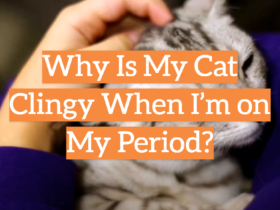
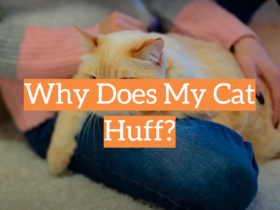
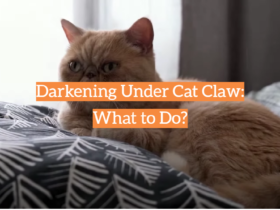
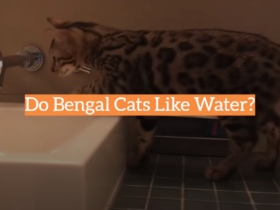
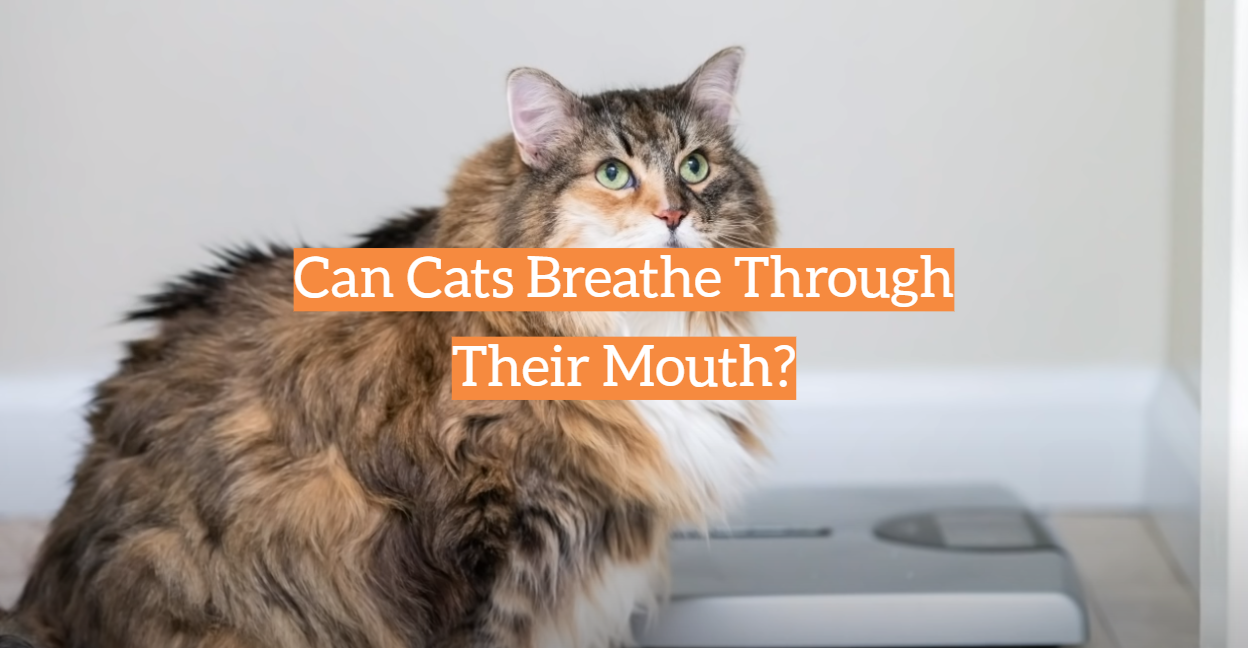
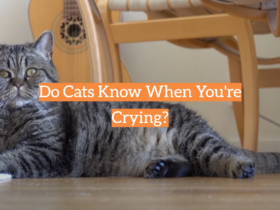
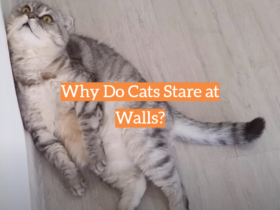
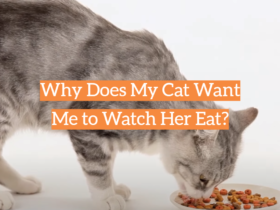
Leave a Reply